What if parents and community leaders were supported to innovate like their private sector counterparts?
From the very beginning, All In For Kids set out to put this concept into motion.
We launched the initiative with three virtual town halls—one for healthcare providers, one for educators, and another for those working with parents and caregivers—to ask what it would take to prevent and heal childhood trauma. And then we selected our first cohort of eight grantee partners, all of whom were already developing innovative programs across sectors to better respond to the needs of young children and their families.
Our goal was to provide flexible funding and strategic support to community grantees so they could take risks and focus on their bigger, transformative ideas.
Since then, the All In for Kids cohort has reimagined how to achieve sustained family and childhood well-being, rooted in family and community needs.
Their recommendations? Create community-led services. Prioritize early childhood. And expand economic opportunity for families of young children .
Create Responsive, Parent and Community-Led Services
While community organizations can be the best early childhood advocates, they often need more capacity and funding to respond effectively.
Community-based partnerships among schools, families and social service agencies can address the many complex factors contributing to racial inequities in the early childhood ecosystem—but it takes time, resources, and flexibility in thinking.
Part of All In For Kids’ successful model involves reimagining how these organizations can partner with families and communities to solve problems and innovate together.
What does that look like in practice? One grantee partner played a crucial role in expanding family-driven strategies through Family Resource Centers. Another gathered community input through “at your fingers” smartphone technology to identify community needs and gather feedback on crucial services. And another worked with young children and their families in a school setting to offer a fully integrated full-day program, including a wellness program addressing the needs of the whole family.
This experimentation with modes and models of learning creates a dynamic and interactive space for innovation, reflection, improvement, and learning. These kinds of thoughtful, community-led and trauma-responsive community health and education services address children’s developmental needs and the needs of their caregivers.
Our grantee partners show that more opportunities for collaboration and coordination across sectors should be created to repair disjointed sectors like education, healthcare, and workforce development.
Prioritize Early Childhood
Despite being the foundation for lifelong learning, health, and economic well-being, early childhood is seldom prioritized in our public policies and practices.
And yet, study after study demonstrates that communities must start early – and include integrated social and public health strategies – to disrupt the cycle of child adversity and intergenerational trauma.
Through their tenacity and organizing power, All In For Kids grantee partners are working to increase investments in early childhood. Our grantees helped secure policy wins for childcare workers and eliminated childcare fees for low-income families. One partner was instrumental in passing the Affordable Paid Leave for All Bill (SB 951), which helped more Californians take time off to care for their families. The work of another partner has led to large-scale investments in Family Resource Centers to grow their capacity to serve BIPOC families. Their work was also pivotal in creating a community pathway for support in the child welfare system.
In addition to pushing for change, the All In For Kids partners are also demonstrating the power of collective action. Their work has fostered real relationships between elected leaders, parents, and community leaders to shift a focus on early childhood and invest in prevention.
Improve Economic Opportunities for Young Moms and Families
Chronic poverty can result in negative health and educational outcomes for children. By contrast, when families have the support they need to meet basic needs like housing, food, and medical care, children do better.
As a community-led innovation hub, All In For Kids has developed new ways to help parents care for their families, pay their bills, and plan for the unexpected. These strategies involve helping parents earn more money in their existing jobs or realize their future entrepreneurial dreams.
Through the work of our grantee partners, parents have moved from volunteers to social entrepreneurs who are compensated for their expertise and time. In one project, a grantee partner created new ways to move investment capital to young moms ready to be entrepreneurs. Another partner led a movement to increase wages for early childhood educators and created a new business model for promotoras (culturally relevant community health workers). Another galvanized young people to fight for Universal Basic Income.
In such a short time, our grantee partners show what’s possible when parents and communities are resourced to lead the way. We look forward to continuing to learn with them as they support the best ecosystems for California’s youngest children.

